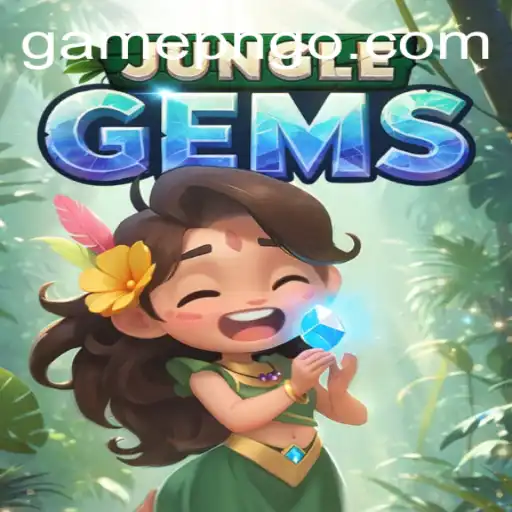
gameph - Exploring the Exciting World of Rotary Games: A Deep Dive into Gameph
An in-depth exploration of rotary games, a genre that uniquely integrates rotation mechanics into gameplay, its growing presence within gameph, and its potential impact on both entertainment and educational gaming.

Exploring the Exciting World of Rotary Games: A Deep Dive into Gameph
The world of gaming has seen numerous innovations over the years, and among these, the concept of rotary games has emerged as an intriguing category. This unique genre combines elements of traditional gameplay mechanics with the novelty of rotation, creating a dynamic experience for players across various platforms. A noteworthy aspect of rotary games is how they are increasingly becoming a part of the larger gaming ecosystem, known colloquially as 'gameph.'
What are Rotary Games?
Rotary games are a subset of video games that involve a rotational interface. This can range from spinning wheels to navigate or complete puzzles, to rotating boards or environments to achieve game objectives. Unlike traditional linear gameplay, rotary games challenge players to think in terms of rotation and angles, often bringing a fresh perspective to problem-solving in gaming. The innovation behind these games stems from breaking away from linear movements to offer more complex interactions.
The Appeal of Rotary Games
The appeal of rotary games largely lies in their ability to offer unique experiences that break the mold of traditional gameplay. Players are not just moving characters across flat terrains or through pre-defined paths; instead, they are engaging with interactive environments that demand an understanding of physics and spatial awareness. This kind of engagement can be both mentally stimulating and rewarding, providing a deeper gameplay experience.
Bringing in New Challenges
Rotary games often introduce fresh challenges that keep players invested. Whether it's navigating a rotating labyrinth or aligning various elements to progress through levels, these challenges require strategic planning and quick reflexes. The rotation element adds a layer of complexity that keeps gamers coming back for more, driven by the urge to master the rotation mechanics.
The Integration of Rotary Games into Gameph
Gameph, a broad term encapsulating the entire landscape of gaming, has seen a growing inclusion of rotary games. This inclusion signals a recognition of the genre’s potential to diversify the gaming experience and appeal to a wider audience. Within gameph, rotary games serve as a bridge between traditional gaming genres and emerging technologies, capitalizing on player curiosity and the desire for novel experiences.
Technological Advancements
The success and appeal of rotary games have been bolstered by technological advancements in gaming platforms. Enhanced graphics, more responsive control interfaces, and the integration of virtual and augmented reality have allowed developers to create more immersive rotary game experiences. As a result, these games now have the potential to go beyond traditional gaming screens, offering players a more tactile and engaging interaction.
Popular Examples of Rotary Games
Several games have successfully implemented rotary mechanics to carve out a niche in the gaming world. Titles like "Monument Valley" and "The Room" series have drawn critical acclaim for their innovative use of rotation in game design. These games showcase how rotational movement can be used not just as a gimmick, but as a core gameplay mechanic that enhances the overall experience.
Impact on Gameplay Mechanics
By incorporating rotating elements, these games have set new standards for gameplay mechanics. Players are encouraged to view problems from multiple perspectives, often rotating the game environment itself to discover hidden paths or solutions. This kind of gameplay encourages creative thinking and a more profound engagement with the game world.
The Role of Rotary Games in Educational Gaming
Besides entertainment, rotary games hold educational potential by promoting cognitive skills such as spatial reasoning and problem-solving. In educational settings, rotary games are being utilized to teach subjects such as mathematics and physics. The interactive nature of these games makes abstract concepts more tangible, helping learners understand complex ideas through direct interaction and experimentation.
Enhancing Learning Through Play
By incorporating rotary mechanics into educational games, educators are tapping into the motivational power of play. Learners are more likely to engage deeply with educational content presented in a game format, where rotation-based challenges can make learning both fun and effective.
The Future of Rotary Games
As the gaming industry continues to evolve, the future for rotary games appears promising. With the ongoing integration into the wider framework of gameph, and the continuous advancements in technology, rotary games are poised to become a staple for gamers seeking fresh challenges.
Expanding Horizons
The potential for rotary games extends beyond just new titles; they can also influence existing franchises to adopt rotational mechanics, offering new ways to engage players. Additionally, as virtual reality becomes more mainstream, rotary games could provide the perfect platform for immersive, 360-degree gaming experiences.
In conclusion, rotary games have carved out a unique niche in the gaming world, merging innovation with engagement in a way that few other genres have managed. As part of gameph, these games continue to push the boundaries of what is possible in video game design, promising exciting developments in the years to come.


GOLD VIP
Minimum deposit: ₱1,500
- ✅ 150% bonus on all deposits
- ✅ Priority withdrawal in 1 minute
- ✅ 10% cashback weekly
- ✅ VIP support 24/7
- ✅ Higher betting limits
PLATINUM VIP
Minimum deposit: ₱6,000
- ✅ 200% bonus + all Gold benefits
- ✅ Instant withdrawal 24/7
- ✅ 15% cashback weekly
- ✅ Exclusive VIP table in casino
- ✅ Special event invitations
DIAMOND VIP
Minimum deposit: ₱30,000
- ✅ 300% bonus + all previous benefits
- ✅ Dedicated personal manager
- ✅ 20% cashback weekly
- ✅ Unlimited withdrawal limits
- ✅ Exclusive trips and gifts
🚀 Register NOW and Get ₱15,000 Bonus!
⏰ LIMITED TIME OFFER! Join over 1.2 million players who have already discovered why gameph is the #1 betting platform in the Philippines. Registration in 30 seconds, first withdrawal in 2 minutes!
💬 What our players say
"Best platform I've ever used! GCash withdrawal in 2 minutes, amazing support!"
- Carlos M., Manila ⭐⭐⭐⭐⭐
"Won ₱45,000 on Gates of Olympus! They paid everything correctly via GCash."
- Ana L., Cebu ⭐⭐⭐⭐⭐
"VIP system is amazing! I have a personal manager and cashback every week."
- Roberto S., Davao ⭐⭐⭐⭐⭐
PAGCOR License
SSL 256-bit
eCOGRA
BSP Approved





